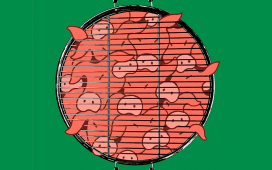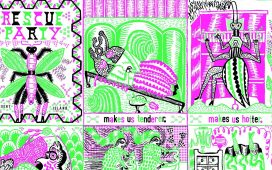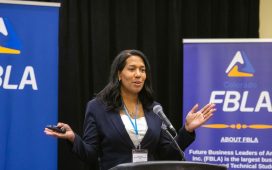Trump’s lawyers and Mueller’s team met frequently at Mueller’s headquarters, in Patriots Plaza, and, as the date of the Camp David interview approached, the negotiations grew increasingly tense. Dowd has a blustering style, and he berated Mueller about the basis for the investigation. Trump had hired Dowd in large part because the lawyer and Mueller had known each other for years. Dowd played on this familiarity.
“Cut the bullshit, Bob,” Dowd said, at one meeting, according to people present. “You know you have nothing on him.” Dowd was aware that, if any accusations were made, the most crucial would be obstruction of justice: “What’s your theory, Bob? What law did the President violate? You’re seriously going to claim that firing the F.B.I. director is a criminal act? You know he can fire the director for any damn reasons he wants.” Mueller absorbed most of these sallies in silence.
Sekulow, who had often argued before the Supreme Court, was originally hired to deal only with constitutional issues for the defense team. But he gradually assumed an expanded role on Trump’s behalf, usually playing the scholar to Dowd’s pugilist. Sekulow opposed any direct questioning of the President, but, to avoid undercutting Dowd, he tried simply to narrow the scope of the planned interview. He told Mueller that he thought Trump might be able to answer questions about his actions during the campaign, but that anything after he was elected should be off limits, owing to executive privilege—a highly debatable assertion. Mueller greeted this, too, with silence.
Sekulow asked Mueller why he needed to interview the President at all. Mueller’s prosecutors had the documents and the testimonies of others. They knew the facts—that Trump had fired Comey, that he’d tweeted insults at Jeff Sessions. What more did they need? Mueller finally replied, and his words, in a way, defined his investigation: “We need to know his state of mind.” It was a narrowly legalistic response. In order to obtain a conviction for most crimes, including obstruction of justice, prosecutors must prove that the defendant had bad or corrupt intent. As Sekulow pointed out, Mueller already knew that Trump had fired Comey. But Mueller said that he needed to know why Trump had done so.
Sekulow asked Mueller whether, in his position, he would allow Trump to testify. Sekulow was not posing a rhetorical question. He really wanted to know: What was in it for Trump to answer Mueller’s questions?
Mueller was aware that few lawyers would choose to allow a client like Trump, with his propensity to lie constantly and egregiously, to answer questions in a grand-jury setting. Mueller said something about “the best interests of the country,” but Sekulow had made his point, and the meeting ended soon afterward. A few days later, about two weeks before the scheduled Camp David session, Dowd called Mueller to tell him that Trump would not be sitting for an interview.
This presented Mueller with the question of whether he should issue a grand-jury subpoena for Trump to testify, and thus invite a battle in court. There were two key precedents in the Supreme Court rulings. In United States v. Nixon, in 1974, the Court unanimously ordered President Nixon to turn over White House tapes for use in the Watergate-conspiracy trial against his former aides. In Clinton v. Jones, from 1997, the Court ordered Bill Clinton to give a deposition in Paula Jones’s sexual-harassment civil case against him.
Mueller’s team later argued to Trump’s lawyers that the Nixon case showed that Presidents had to coöperate with criminal investigations of the White House. Sekulow responded that a grand-jury subpoena for Trump was different. The Watergate tapes already existed; Nixon did not have to disrupt his duties to prepare his testimony. As for the Jones case, Mueller asserted that the courts regarded criminal investigations as a higher priority than civil matters. The Court had directed Clinton to give a deposition in a civil case; this was powerful evidence that the Justices would uphold a grand-jury subpoena, where the public interest was greater. Sekulow replied that the Jones case concerned only Clinton’s behavior before he took office, so the questioning did not risk disclosure of matters relevant to his Presidency. Thus the Jones case had little bearing on how a court would address a grand-jury subpoena for Trump to talk about his actions as President.
Which side was right? In truth, no one knew. But if Mueller had issued the subpoena in January, 2018, there was a chance that the Supreme Court would have carried out an expedited review and issued its decision by the end of June, when the investigation would have been just a year old. Mueller may have been concerned about dragging things out, but no one could have fairly accused him of doing so had he subpoenaed Trump at that time. And Trump’s testimony would certainly have been the most important piece of evidence in this investigation.
Instead, Mueller kept negotiating for an interview. Later, he wrote in his report, “We thus weighed the costs of potentially lengthy constitutional litigation, with resulting delay in finishing our investigation, against the anticipated benefits for our investigation and report.” But Mueller himself was responsible for much of the delay. In this critical moment, he showed weakness, and Trump pounced. After his lawyers refused the Camp David interview, he began to attack Mueller. “The Mueller probe should never have been started in that there was no collusion and there was no crime,” he tweeted in March, 2018, in one of his first direct attacks on the special counsel. “WITCH HUNT!”
Trump was dissatisfied with Dowd, who he felt had misled him about how quickly he could wrap up the Mueller investigation. Seeking a lawyer who would take a harder line on his behalf, Trump hired Rudolph Giuliani, who came on in April, 2018. During the transition from Dowd to Giuliani, Sekulow asked Mueller for a pause in negotiations about Trump’s possible testimony. At last, on May 5th, Trump’s team requested a briefing session for Giuliani. At the meeting, Giuliani wanted to nail down a commitment from Mueller to follow a Justice Department policy, established by its Office of Legal Counsel (O.L.C.) in 1973 and reaffirmed in 2000, barring the indictment of a sitting President. Aaron Zebley, from Mueller’s staff, confirmed that Mueller would honor the policy.
Giuliani said that he might agree to allow the President to answer written questions, but only about his actions during the campaign. Everything he did as President was covered by executive privilege.
Not so, Mueller said. They went back and forth over this familiar ground.
Finally, Giuliani said, “What are you going to do? Are you going to subpoena the President?”
Mueller said, “We’ll get back to you.” More weeks passed.
Mueller eventually capitulated on a grand-jury subpoena and on an oral interview. Then he gave up on questions about Trump’s actions as President. Finally, Trump’s lawyers presented Mueller with a take-it-or-leave-it proposal: Trump would answer only written questions, and only about matters that took place before he became President. Mueller took it.
Even this process was protracted. Mueller didn’t submit the written questions until September 17, 2018. Sekulow, with Jane and Martin Raskin, husband-and-wife Florida defense lawyers who had joined Trump’s team, took charge of preparing the responses. This turned out to be a maddening endeavor. Before drafting answers, they had to talk to Trump to get a sense of what he knew. Trump had trouble focussing, and his anger about the Mueller investigation led him to avoid meeting with the Raskins. In fact, it was hard for any of Trump’s lawyers to get on his calendar. As Philip Rucker and Carol Leonnig reported in the Washington Post, one session came to an end when news broke that pipe bombs had been mailed to prominent Democrats and media outlets; another was interrupted by phone calls from the Turkish President, Recep Tayyip Erdoğan, and the Chinese President, Xi Jinping.
The Raskins fastidiously checked Trump’s verbal responses against the documentary record—videos of his campaign appearances, his personal schedule, e-mails among his campaign subordinates—and the answers, nominally provided and signed by Trump, were submitted to Mueller on November 20th. Mueller and his staff had low expectations for Trump’s answers; the President didn’t meet them. He said twenty-two times that he failed to “recall,” and twelve times that he had no “recollection.”








